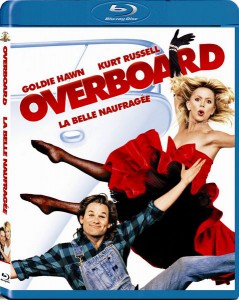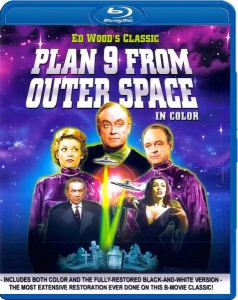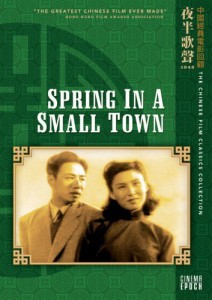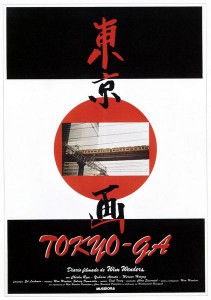
Snobbish and wealthy Joanna Stayton (Goldie Hawn) is living a life of leisure with her husband, Grant (Edward Herrmann), when she falls off their yacht and suffers amnesia. Grant takes the opportunity to rid himself of the demanding Joanna – but Dean (Kurt Russell), a widowed carpenter with four kids who once worked for Joanna, arrives and claims she’s his wife. Joanna can’t remember her past identity, but has trouble believing that she was ever meant to be a working-class mother of four.
Read More »
Daily Archives: July 19, 2016
Plan 9 from Outer Space (1959) Edward D. Wood Jr., Gregory Walcott, Tom Keene, Mona McKinnon, Horror, Sci-Fi

In California, an old man (Bela Lugosi) grieves the loss of his wife (Vampira) and on the next day he also dies. However, the space soldier Eros and her mate Tanna use an electric device to resurrect them both and the strong Inspector Clay (Tor Johnson) that was murdered by the couple. Their intention is not to conquer Earth but to stop mankind from developing the powerful bomb “Solobonite” that would threaten the universe. When the population of Hollywood and Washington DC sees flying saucers on the sky, a colonel, a police lieutenant, a commercial pilot, his wife and a policeman try to stop the aliens.
Read More »
Xiao cheng zhi chun / Spring in a Small Town (1948) Mu Fei, Chaoming Cui, Wei Li, Yu Shi, Drama, Romance

Following WWII and with China brought to it’s knees by the actions of the Japanese, prior to the rise of the Communists, led by Chairman Mao. This is the time during which Fei Mu’s film takes place. Wei Wei plays a woman who lives a lonely life, shackled by her care for her gentle, but ill husband (Shi Yu)- that is until her first love reappears into her life. This is Fei’s penultimate film as director, but is still enjoyed by many today as one of his best works. It has now been a firm favorite of many since it was restored in the 80’s by the China Film Archive and some rate it as one of the greatest Chinese movies in history.
Read More »
Tokyo-Ga (1985) Wim Wenders, Chishû Ryû, Werner Herzog, Yûharu Atsuta, Documentary
Taking a breather from the Paris, Texas shooting, Wim Wenders hopped a plane, camera in hand, to look for the Tokyo enshrined by the late Yasujiro Ozu (whose work Wenders dubs “the sacred treasure of the cinema”). What he found instead, documented in this filmic journal, was an urbanized dislocation not far from the forlorn emptiness he coached out of German and American vistas. Whether abstracting businessmen teeing off atop skyscrapers or the rigorous, artisanal craft of building a wax sandwich display, Wenders scrambles for humanity seeping through neon and steel – a humanity linked, inevitably, to the old Japan of Ozu’s films (rebellious tykes, cherry blossoms, tranquil countrysides). A far less queasy piece of hero-worship than Lightning Over Water, the picture meditates not so much on Ozu the filmmaker than on Ozu the vanishing feeling, motifs and images reconsidered in a modernized Japan circa 1983 (the trains that fill the Japanese master’s pictures with notions of inexorable movement have now become bullet expresses, gliding with smooth, ominous impersonality). Elsewhere, Wenders bumps into Werner Herzog (who bitches about having to space-travel to find pure images nowadays), Chris Marker (whose Sans Soleil would make a superb double-bill with Tokyo-Ga) and two aged Ozu stalwarts, gracious, dignified leading man Chishu Ryu and anecdotal camera operator Yuuharu Atsuta. Wenders’ eulogy for a culture alienating its own roots is built, characteristically, upon cinema’s capacity for regenerative beauty, though his links to Ozu are, if anything, more tenuous than his affinity with Nicholas Ray – Ozu’s images distill life, Wenders’ etherealize it. Cinematography by Edward Lachman.
Read More »
